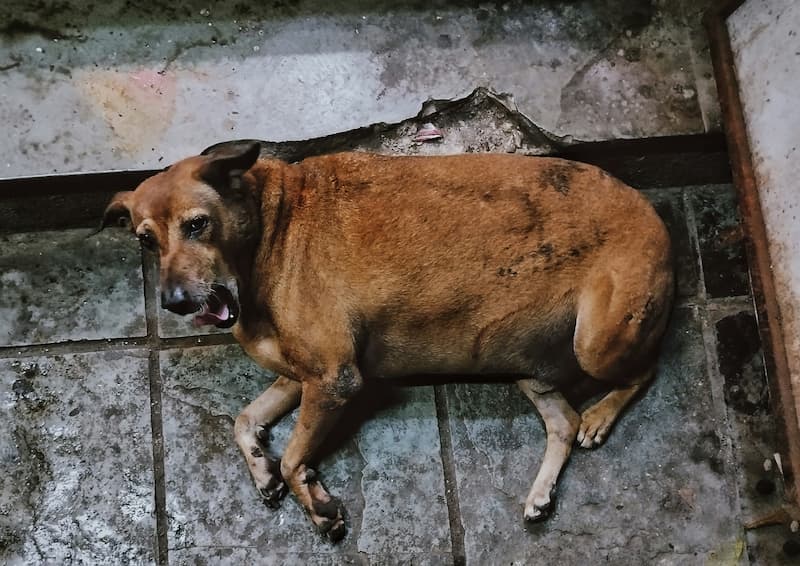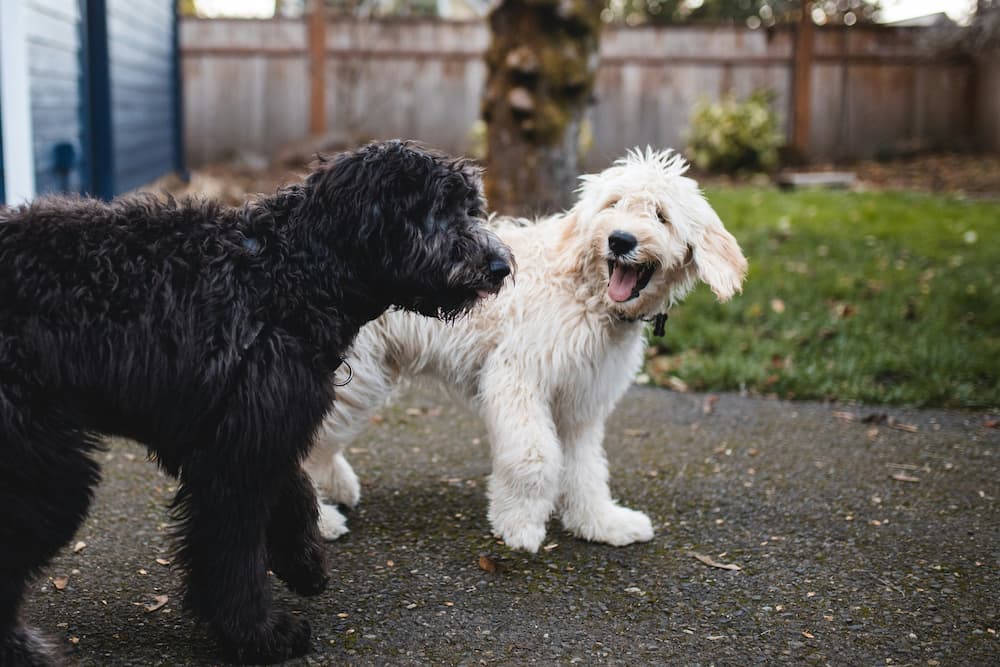It’s a scenario many dog owners know all too well: that unsettling sound in the middle of the night, followed by the discovery of an unpleasant mess. Finding that your dog has diarrhea is not only distressing but can also leave you wondering about the underlying cause and proper response. Diarrhea in dogs is a common gastrointestinal issue that varies in severity, from simple dietary indiscretion to signs of serious illness. Understanding why your dog has diarrhea and how to effectively manage it is crucial for every pet owner. This comprehensive guide will help you navigate the causes, symptoms, and treatment options for diarrhea in dogs, empowering you to provide the best care for your furry family member.

What Is Dog Constipation?
Dog diarrhea refers to the condition where a dog passes loose, unformed, or watery stools more frequently than normal. It’s not a disease in itself but rather a symptom of an underlying issue affecting the gastrointestinal tract. Diarrhea occurs when something disrupts the normal absorption of water and nutrients in the intestines, leading to accelerated transit time of food through the digestive system.
The consistency and frequency of bowel movements can vary widely—from slightly soft stools to entirely liquid feces. In some cases, diarrhea in canines may also contain mucus, blood, or unusual colors that indicate specific problems. Acute diarrhea comes on suddenly and typically lasts a few days, while chronic diarrhea persists for three weeks or longer, often indicating a more serious health concern that requires veterinary attention.
What Causes Dog Constipation?
Understanding what triggers diarrhea in dogs is essential for proper treatment and prevention. The causes range from simple dietary issues to serious medical conditions:
Dietary Indiscretion
Dogs are curious by nature and often eat things they shouldn’t. Scavenging garbage, sudden diet changes, eating table scraps, or consuming foreign objects can all disrupt their digestive system. Many cases of dog diarrhea stem from these dietary missteps.
Infections
Various pathogens can cause gastrointestinal upset:
Medical Conditions
Several underlying health issues can manifest as diarrhea:
Stress and Environmental Factors
Dogs can experience digestive upset from anxiety caused by changes in routine, travel, or new environments. Temperature changes and exposure to cold can also stress their system.
Medications and Toxins
Some medications (especially antibiotics) can disrupt gut flora balance. Ingestion of toxic substances, plants, or chemicals will often cause diarrhea as the body attempts to eliminate the toxin.
What Are the Symptoms of Dog Constipation?
While loose stools are the primary indicator of dog diarrhea, several accompanying symptoms can help determine the severity and potential cause:
Primary Signs
Associated Symptoms
Warning Signs
Certain symptoms require immediate veterinary attention:
Monitoring your dog’s overall behavior along with their bowel movements provides crucial information for determining whether you can manage the situation at home or need to seek professional care.

How Can I Help My Constipated Dog?
When your dog has diarrhea, there are several steps you can take to provide relief and support recovery:
Initial Management
1. Brief fasting: For adult dogs, withholding food for 12-24 hours (but never water) can allow the gastrointestinal tract to rest. Note: Puppies should not fast for more than 12 hours due to their higher metabolic needs.
2. Hydration: Ensure fresh water is always available. You can offer diluted low-sodium chicken or beef broth to encourage fluid intake. For dehydrated dogs, veterinary electrolyte solutions may be beneficial.
3. Bland diet: After fasting, introduce easily digestible foods:
Feed small meals every 3-4 hours for the first day, then gradually return to normal feeding.
Supportive Care
Medications
While some human anti-diarrheal medications are sometimes used in dogs, never administer any medication without veterinary guidance, as many can be toxic to pets. Your vet may recommend:
Monitor stool closely—if it firms up in 1-2 days, gradually switch back to regular food. If not, or if symptoms worsen, it’s time for dog diarrhea treatment from a vet.
When Should I See a Vet?
While many cases of dog diarrhea resolve with home care, certain situations require professional veterinary attention:
Immediate Emergency Care
Seek immediate veterinary attention if your dog shows:
Prompt Veterinary Consultation
Schedule a same-day or next-day appointment if:
Non-Urgent Veterinary Visit
Schedule a routine visit if:
Remember that timely veterinary intervention can prevent minor issues from becoming serious health threats. When in doubt, it’s always better to err on the side of caution and consult your veterinarian.

Conclusion
Dealing with a dog experiencing diarrhea is an inevitable part of pet ownership, but understanding how to respond effectively makes these episodes less stressful for both you and your canine companion. Most cases of dog diarrhea resolve with simple home management including brief fasting, adequate hydration, and a bland diet. However, recognizing when to seek veterinary care is crucial for your dog’s health and wellbeing.
By paying attention to your dog’s overall symptoms alongside the diarrhea, maintaining a consistent appropriate diet, and following recommended preventive measures, you can help minimize future episodes. Remember that persistent or severe diarrhea in dogs warrants professional evaluation to identify and address underlying causes. Your attentive care combined with veterinary guidance when needed will help keep your furry friend’s digestive system healthy and functioning properly.
FAQ
How much canned pumpkin should I give my dog for constipation?
For most dogs, 1-2 tablespoons of plain canned pumpkin (not pie filling) mixed with their food 2-3 times daily can help firm up stools. Adjust based on your dog’s size—small dogs may need only a teaspoon, while large breeds might benefit from 2-3 tablespoons per serving.
Can anal gland problems cause constipation in dogs?
While anal gland issues typically don’t directly cause diarrhea, the reverse can be true—diarrhea can contribute to anal gland problems because formed stools normally help express these glands during defecation. Chronic soft stools may lead to impacted anal glands, which require veterinary attention.
Are probiotics safe and effective for relieving dog constipation?
Yes, veterinary-formulated probiotics are generally safe and can be effective for managing dog diarrhea, especially cases related to antibiotic use, dietary changes, or stress. They help restore the natural balance of gut bacteria. Always choose probiotics specifically designed for dogs and consult your veterinarian for appropriate strains and dosages for your pet’s condition.


